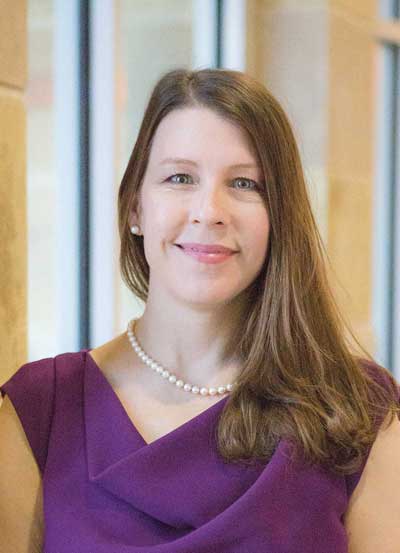Treating Obesity Comprehensively…Now is the Time

Jennifer C. Seger, MD, FOMA, is the Co-clinical Editor of Bariatric Times; Diplomate, American Board of Obesity Medicine; Medical Director, Bariatric Medical Institute of Texas, San Antonio, Texas.
Dear Readers,
With the start of the new year, losing weight is on the minds of many people. Often, plans are made to start a new diet or exercise routine, only to see those efforts begin to wane before the flip of the monthly calendar.
People, including those in medicine, frequently underestimate the complexity of obesity and think that eating less and exercising more is the key to success. I’m not saying that won’t help, but it’s far more complicated.
I recently had a conversation with a group of people in my community about weight loss. Having all struggled with their weight, each shared their own experiences over the years. They tried everything, from commercial programs like Jenny Craig and Weight Watchers, to 500-calorie human chorionic gonadotropin (HCG) diets, meal replacements, Whole 30, and numerous others. A few had tried medications off and on. Some had hired personal trainers, or joined bootcamps or CrossFit. Two had undergone bariatric surgery, initially achieving significant weight loss, only to regain some of that weight in recent years.
In their minds, they had tried everything, but no one had ever worked with an obesity medicine specialist. Most were not even aware such specialists existed.
As a family medicine physician who focuses on obesity, I explained to the group that I am not just interested in seeing the number on the scale drop, but rather, I am committed to helping patients achieve improvement in their overall health—mind, body, and spirit.
Over the past 13 years, it has been my experience that physicians, physician assistants (PAs), and nurse practitioners (NPs) who have chosen to focus their practices on helping patients with obesity do so with a similar mindset. We recognize the multi-faceted complexity of the disease and the importance of addressing all the individual’s contributing factors. This is critically important, as we cannot fix that which we don’t understand, and each person’s journey is unique.
Currently, it is estimated that only a small percentage of bariatric surgeons incorporate obesity medicine specialists into their program. Since it is well established that obesity is a chronic disease that cannot be excised like an appendix, surgery, while a transformative tool, cannot by itself be the answer. The successful and sustainable treatment of obesity requires an all-hands-on-deck approach, and it is time we recognize this and start approaching obesity collectively and comprehensively.
At the recent American Society for Metabolic and Bariatric Surgery (ASMBS) re-UNITED conference in Las Vegas, it was exciting to hear that several surgeons spoke about “layering” obesity treatment approaches. These surgeons, several of whom are American Board of Obesity Medicine (ABOM) diplomates, are walking the walk and talking the talk, which is great to see.
To date, there are over 5,800 physicians certified as diplomates by the ABOM, and that number is expected to grow each year. To find a diplomate in your area, simply visit www.ABOM.org and click on “Find a Physician/Verify Credentials” link. Additionally, the Obesity Medicine Association (OMA) now offers an Advanced Certification for NPs and PAs. To learn more, visit www.obesitymedicine.org and, under the CME tab, click “NP/PA Certificate of Advanced Education,” or click on the “Find a Clinician” link for a comprehensive list of physicians, NPs, and PAs.
Lastly, I am excited and honored to take on the position of Co-clinical Editor alongside my esteemed colleague, Dr. Rich Peterson. Together, we are committed to providing high quality content to move the field of obesity medicine forward, just as our amazing predecessors, Drs. John Morton and Christopher Still, have done in the past.
In health,
Jenny Seger, MD, FOMA
Category: Editorial Message, Past Articles




